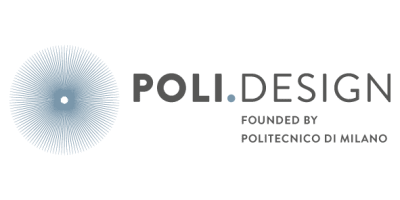
POLI.design is based in Milan, a universally known and recognised international centre of excellence for design.
The permanent structures, cultural institutions, fairs and showrooms, publishing industry, schools, displays, exhibitions, and events that the city has to offer are numerous and contribute to creating a culturally lively and dynamic climate that can enrich professional and training courses, providing a broader experience of design in all its most up-to-date forms, from the perspective of constant innovation.
POLI.design operates in the field of design acting as an interface between universities, companies, and professional organizations, institutions and bodies.
It develops training programmes for young graduates and professionals, as well as training programmes for companies that are closely focussed on innovation. It operates from the perspective of internationalisation, establishing partnerships of purpose with universities, schools, bodies, institutions, enterprises, and companies on a case by case basis.
Why design?
Your text in complex and closely interrelated worlds such as those we live in today, design represents a resource that can guide societies and production systems towards new development models; it is also a resource that is nowadays crucial for standing up to global competition in terms of identity and diversity.
Design is a driving force behind growth that can guide individual and collective choices through cultural trends, guiding tastes, behaviours, lifestyles, and consumption styles. It has numerous and highly varied applications: from research and applications connected with the introduction of new technologies, to designing new products and services, from the study of communication interfaces to managing ergonomic and environmental qualities, from defining urban spaces and one’s own body, to governing processes connected with environmental and social sustainability policies.
In this context, POLI.design proposes to unite the academic and business cultures and the world of knowledge professionals; promote and develop design as a discipline and system of professions; foster virtuous relationships between universities, institutions, manufacturers, and professionals; and support the development of creative enterprises.





